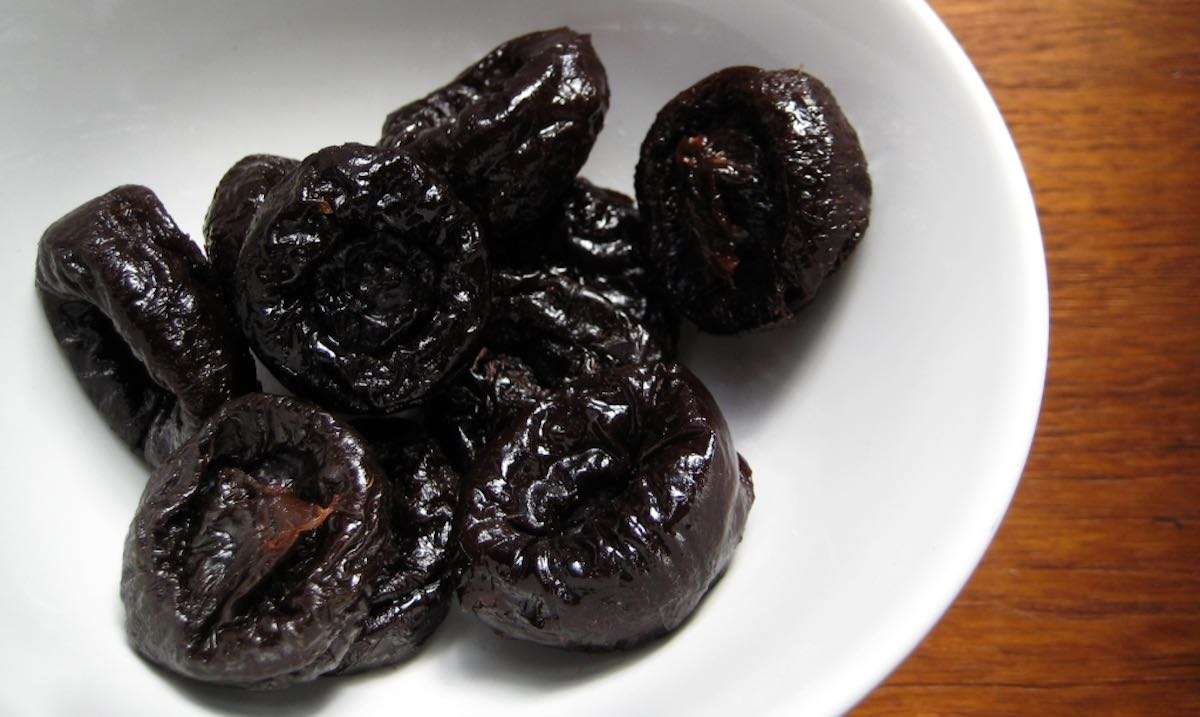Screening For Breast Cancer Might Soon Use Simple Blood Test Following Milk Discovery
Breast cancer screening could be done via a simple blood test in the future, following a major breakthrough studying breast milk.

A handful of prunes a day protects older women against osteoporosis, according to new research.
Levels of bone boosting hormone oestrogen drop after the menopause which triggers an increase in inflammation in the body, which can also contribute to bone loss.
The dried plums contain vital chemicals that mimic it.
They are rich in antioxidants which dampen inflammation and destroy harmful free radicals.
Over 50s who regularly snacked on them were less prone to the disease that leaves people with brittle bones that raise the risk of fractures.
The condition affects three million British adults—mostly women. Every year 300,000 people suffer a ‘fragility fracture' from a fall at standing height or less.
They cause significant pain, disability and loss of independence. More than 1,000 people die from them—every month.
Previous research has shown that prunes contain polyphenol extracts, plant compounds that act as antioxidants and reduce inflammation.
They promote lower levels of oxidative stress and inflammation in a type of bone cell called osteoclasts.
Researchers from the Integrative and Biomedical Physiology Program and the Departments of Nutritional Sciences and Kinesiology at The Pennsylvania State University explored the effects of prunes on bone health after menopause.
The study of 235 women with a bone mineral density score that was defined as low is the first to demonstrate the benefit of the simple dietary change.
The postmenopausal women were divided into three groups: one that ate 50 grams of prunes (about six) daily for 12 months, one that ate 100 g of prunes (about 12 prunes) daily for 12 months and a control group who ate no prunes.
The research team looked at blood samples taken from all volunteers before and after the trial and found significant reductions in inflammatory markers in both of the prune-eating groups compared to the control group.
First author of the study, doctoral student Janhavi Damani, said: "Our findings suggest that consumption of six to 12 prunes per day may reduce pro-inflammatory mediators that may contribute to bone loss in postmenopausal women.
"Thus, prunes might be a promising nutritional intervention to prevent the rise in inflammatory mediators often observed as part of the aging process."
Lead author Professor Mary Jane De Souza, of Pennsylvania State University, said, "It is exciting the data from our large randomised controlled trial in postmenopausal women showed consuming five to six prunes a day demonstrated the benefit of protecting from bone loss at the hip.
"Our data supports the use of prunes to protect the hip from bone loss post menopause.
"Indeed, this data may be especially valuable for postmenopausal women who cannot take pharmacological therapy to combat bone loss and need an alternative strategy."
Under 100 calories per serving, prunes are a nutrient-dense fruit that packs a powerful punch of vitamins and nutrients.
They also contain boron, potassium, copper and a cocktail of healthy plant compounds that are good for the bones.
They are regarded as a ‘superfood' for improving gut bacteria, slowing down ageing, combating iron deficiency, diabetes and heart disease.
This study has been published in Advances in Nutrition.
SHARE the Good Food News With Others Who'd Love to Know It…
Be the first to comment